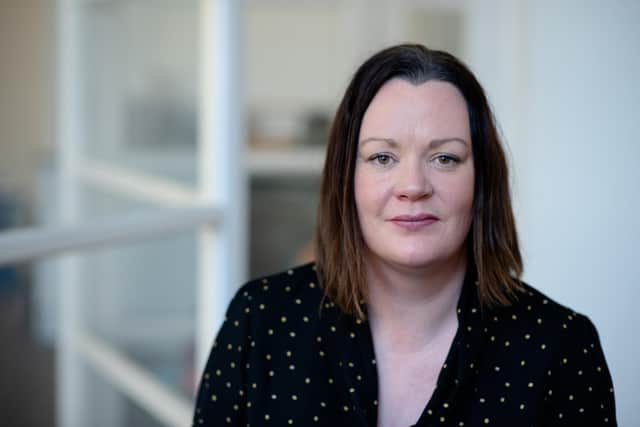Get your language right when dealing with traumatised victims of crime - Kate Wallace


‘Mind My Experience’ was launched at an event last month alongside the Cabinet Secretary for Justice, Keith Brown.
The guide was driven by the need to get language right for people that have come through traumatic experiences.
Advertisement
Hide AdAdvertisement
Hide AdWe are aiming to positively influence a wide range of professionals, the public and the media with the guide, in the hope that sensitive language will be used to communicate with, and about people affected by crime.
Scotland wide there is a move towards trauma-informed practice, which means organisations are adapting how they deliver services to become more sensitive to what has happened to the people they support. The guide is part of a programme of work here at VSS, with staff and volunteers helping to assist in the organisation becoming fully trauma-informed.
The document was originally developed for colleagues at Police Scotland as part of our aims to ensure consistent police referrals into their services. We have since consulted with people impacted by crime through our lived experience reference group, and with partners and stakeholders in the Scottish Government and wider justice sector, to develop the guide further.
Examples of preferred language that is in the guide include the use of ‘move forward’, an empowering term which acknowledges what people have experienced, and shows the positive outcome of the work they put in themselves.
The guide also encourages professionals to avoid using the word ‘evidence’ when referring to the body of a loved one, instead opting to use the person’s name, as this can help to avoid re-traumatisation.
We want to make sure we get it right for every person who is affected by crime, with this being embodied in our organisational strategy.
Our vision is that people affected by crime are treated with dignity and respect and are at the heart of the justice system in Scotland. This is where the idea of ‘Mind My Experience’ stemmed from – a guide on language which ensures everyone affected by crime is treated with the respect they deserve, and not re-traumatised by reporting to the police or the justice system itself.
More than 50% of crimes go unreported, and our language guide was launched during our latest campaign, Mind My Voice. This campaign focussed on hidden victims - shining a light on the stories of people affected by crime that would otherwise be unheard.
Advertisement
Hide AdAdvertisement
Hide AdEveryday crime is evolving, and we have acknowledged this in our strategy. Cybercrime methods change often, leaving thousands of Scots out of pocket every year. Hate crime and domestic abuse rates have increased significantly since the beginning of the pandemic. Our aim for this guide is for it to be a working document, and evolve alongside the needs of the people we support.
We acknowledge the changing landscape of crime, and the subsequent impact this can have on victims, witnesses and families, and we want the language guide to reflect this.
We have many future aspirations for this guide, including continuing to work with people affected by crime, partners and stakeholders to ensure the guide is as up to date and as trauma-informed as possible.
Our goal is for this guide to be a useful tool for anyone who comes into contact with someone affected by crime. We also welcome any feedback and additional comments to be added into the document as our trauma-informed work continues.
You can view the language guide by clicking here. If you have been the victim of a crime, and are needing emotional support, Victim Support Scotland is here for you. You can get in touch through our helpline on: 0800 160 1985 or through the online chat on our website: victimsupport.scot.
Kate Wallace, Chief Executive of Victim Support Scotland
Comments
Want to join the conversation? Please or to comment on this article.